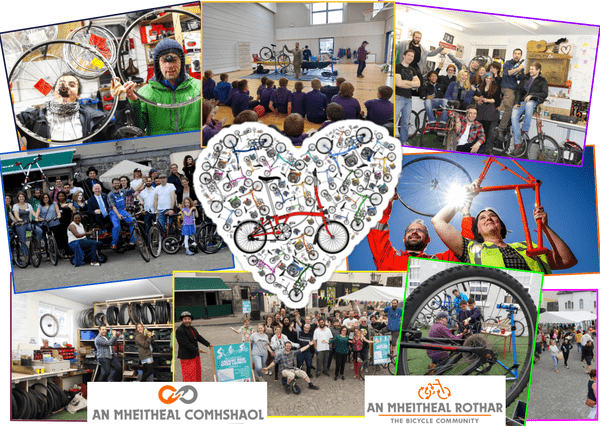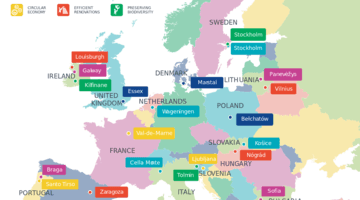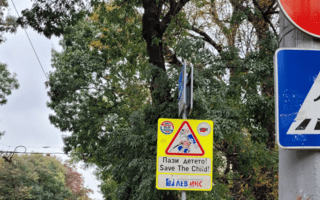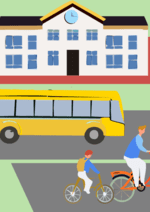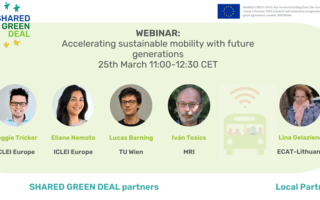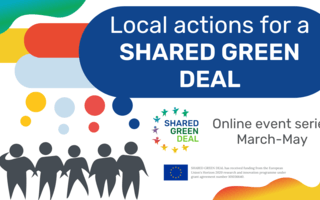Galway (Ireland)
The mobility labs will involve workshops with 10-16 year-old young people from 3 schools over the next year. The workshops will use a co-creative approach to (i) discuss why there is a gender difference in young people cycling to school, (ii) identify policy and other forms of positive intervention to help address the inequality and (iii) work to have the policy recommendations brought forward and acted on, by decision makers and/or work to have the other recommendations brought forward and acted on though grassroots community/school efforts.
Local context
Galway is a commuter town with a large hinterland of smaller towns. Set in the west of Ireland, it is a medieval city originally with development running in concentric rings around it. In Galway, there is a distinct lack of active travel infrastructure such as cycle paths, pedestrian crossings, pathways, etc.
The results of a mobility survey, carried out in the 2016 Census (CSO), showed that the modal split for commuters in Galway city and suburbs was as follows: 60.2% car travel (driver and passenger), 16.4% on foot, 3% cycle, 5.8% bus, 7.8% bus/train, with the rest other/no response. Despite a high share of cycling to school in Galway, there is still a strong gender gap: in the age group 5-18, 73% of bike users are male, while only 27% are female. While the council has put in safe school zones, these are only for primary schools. The very wet climate in Galway means that covered bike parking is required. However, not all schools have this facility.
One of the main barriers to cycling is fear of traffic. There is a cycle bus initiative where parents volunteer to assist their children to cycle to school, but only a small percentage of children use this. The National Transport Authority runs Bike Week each May, which pays for events encouraging cycling. Galway City Transport Strategy notes that traffic rates of cars between 2 and 3 pm represent 69% of the peak hour levels. This coincides with the end of the school day. While the plan does say it aims to encourage cycling by providing more covered bike parking and encouraging schools to create travel plans, there is limited infrastructure in place and many pupils live far from the school they attend, making cycling challenging even for those who are happy to do it.
Specific needs and challenges
A large percentage of girls stop cycling when they approach their teen years: only 0.4% of Irish teenage girls cycle, compared with 3.7% of boys. This is a huge issue, and it would be good to know what factors are stopping them from using the same roads as their male peers.
The main challenges are the following:
- Drop in numbers cycling over the last 3 decades.
- Gender differences of children engaged in cycling/active travel.
- Dominant Car Culture.
- Infrastructure.
- Lack of supportive attitude concerning cycling among local authority, policy, and policymakers; car-focused planning, engineering & policy.
Detailed description of the experiment
The experiment will analyze the current mobility problems existing in Galway, and the actions that will be implemented will help to achieve the following goals:
- Understand the reasons for the drop in cycling numbers.
- Understand the main factors affecting the gender differences in cycling to school.
- Identify the contributors to car culture to change to support sustainable mobility choices.
- Identify pathways to bring about infrastructure and behavior change.
- Identify supporters who can help bring about infrastructure and behavior change.
- Identify methodologies, programs, services, and policies to deliver locally.
- Develop an action plan.
- As far as possible, begin to implement the action plan.
- Secure funding for further action plan implementation.
Different co-creative tools have been planned to develop for the urban mobility labs. (e.g., participatory meetings, games, study tours, workshops) and the participants will be engaged with these tools:
- Workshops (activities / games around each area / topic)
- Sketch mapping (Before and After with qualitative analysis (2012) Devenish, Louis.)
- Graphic Scribe (Opening / closing events / workshops)
- Involvement of Community experts and existing knowledge.
- Identify outreach methods for engaging wider actors around changing travel habits to school
All these tools together will be crucial to achieve the expected results:
- Increasing the number of children getting to school using sustainable modes.
- Greater gender equality in cycling to school.
- A deeper understanding of how to challenge car dominant culture.
- A program / service delivery plan for our organization for school engagement.
- An action plan with strategic supporters to help implement interventions beyond the scope of the project.
Local engagement
The target group is mainly formed by 30 young people (ages 10-16) from three different schools. These schools do not only include students in the experiments, but also, they involve teachers and other staff:
- Scoil Niocláis Naofa (Claddagh National School).
- Gaelscoil Mhic Amhlaigh (Original Galway cycle bus started going to this school).
- St Endas College
The organization is considering adding a 4th school to the experiment, which can contribute to more effective data collection and a more realistic reflection of the obtained results.
Besides the target group, a series of other stakeholders have been identified as potential participants in the urban mobility labs.
Local partner
An Mheitheal Rothar
Country
Ireland
Number of inhabitants
83,456
City
Galway
Website/social media
Contact person:
Paul O’Donnell, Community Education & Training Coordinatorjigsamr [at] gmail [dot] com
May-Sep 2023
Co-identification, Support Committee Meetings, Sub-Contractor Interview #1
Oct-Nov 2023
Co-Selection & Co-Preparation, Study Tour, Webinar, Sub-Contractor Interview #2
Dec 2023-Mar 2024
Co-Development & Co-Implementation, Experiment Exchange Meeting, Interview Data Collection
Related Green Deal Priorities
TIMELINE
Case Study Guides
|
Find out more


CONTACT
For further details please contact co-leads Professor Chris Foulds (chris.foulds@aru.ac.uk) and Professor Rosie Robison (rosie.robison@aru.ac.uk).

This project has received funding from the European Union’s Horizon 2020 research and innovation program under grant agreement No 101036640. The sole responsibility for the content of this website lies with the SHARED GREEN DEAL HAS project and does not necessarily reflect the opinion of the European Union.
